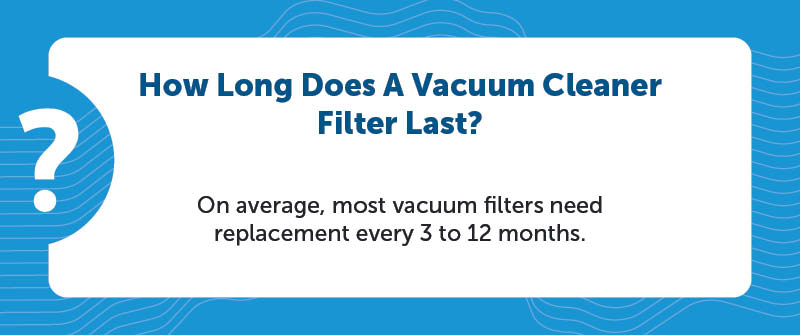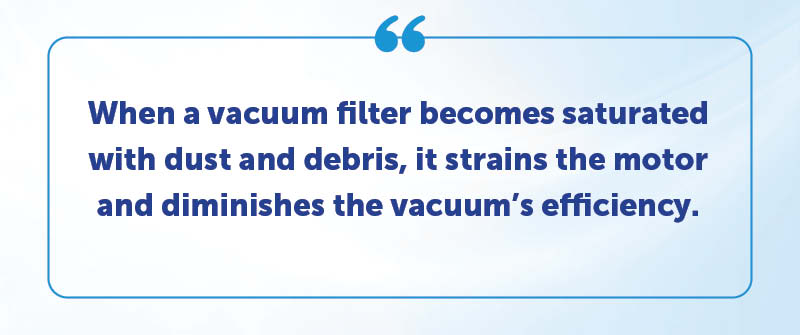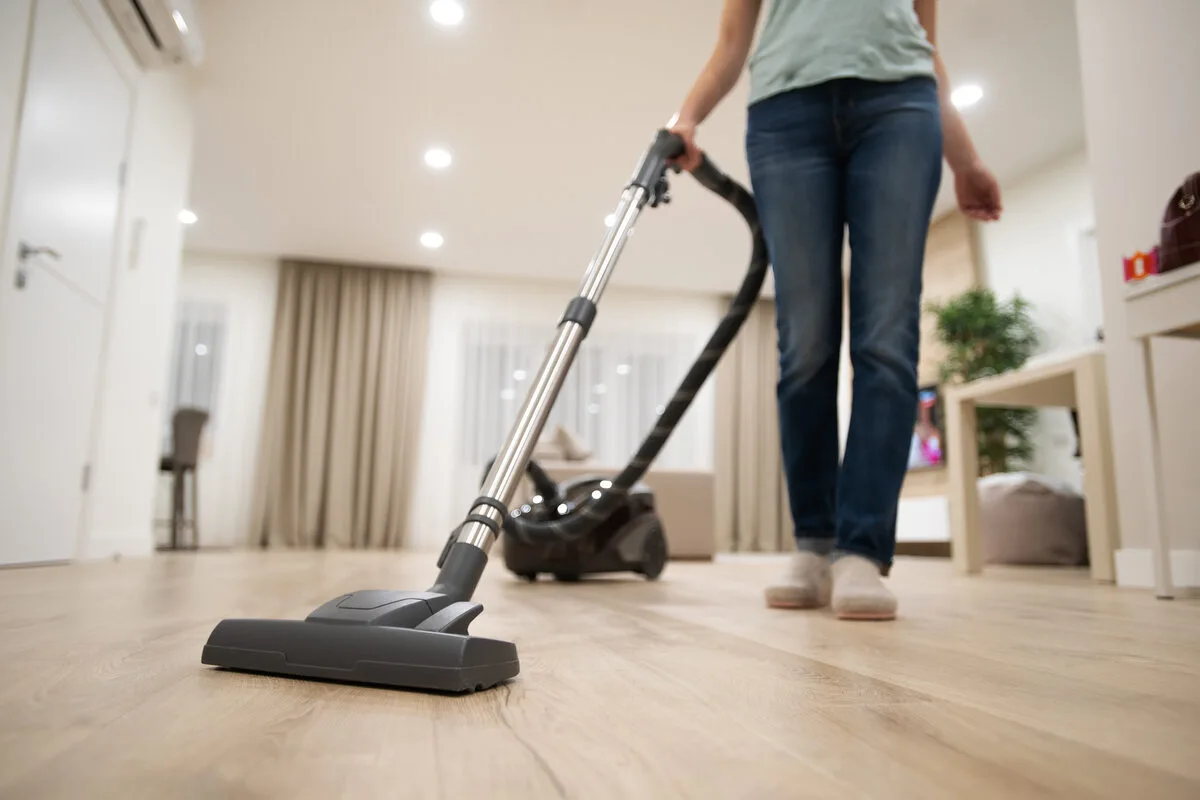How Often Should A Vacuum Filter Be Replaced?
Recommended Replacement Frequency for Different Types of Vacuum Filters
When it comes to keeping your home tidy, the unsung hero is often your trusty vacuum cleaner. But for your vacuum to function at its best, it’s crucial to replace its vacuum filters regularly. HEPA filters, known for their high efficiency, typically need replacing every six to twelve months. Pre-motor filters, which protect the motor from dust and dirt, usually require a change every three to six months. Meanwhile, exhaust filters vary in their lifespan, often needing a replacement once a year.
Factors Affecting Filter Replacement Frequency
Several factors can influence how often you need to change your vacuum filters. Consider your frequency of use and how easily you can access the filter for replacement. If you vacuum daily, your filters will clog faster, necessitating more frequent changes. Pets also play a significant role—pet owners will likely find themselves changing filters more often due to fur and dander. Additionally, if someone in your household has allergies, more frequent replacements may be necessary to maintain optimal air quality.
Signs Indicating It’s Time to Replace the Filter
It’s essential to know the signs that indicate your vacuum filters are due for a change. One key indicator is a noticeable decrease in suction power, which often suggests a clogged filter. An unpleasant odor emanating from your vacuum is another sign that the filter may be saturated with dust and debris. Lastly, if you notice an excessive amount of dust being blown back into your room while vacuuming, it’s likely time for a new filter.
How Long Does A Vacuum Cleaner Filter Last?
The lifespan of a vacuum cleaner filter can vary widely depending on several factors, including the type of filter and the frequency of use. On average, most vacuum filters need replacement every 3 to 12 months. Additionally, the availability and guidelines for vacuum filter replacement can vary by country, affecting how often you may need to replace them. For instance, HEPA filters, renowned for their efficiency, typically last about six months under normal use. However, this can extend up to a year if the vacuum is used less frequently or on cleaner surfaces. All vacuums require periodic cleaning and filter replacement to function properly, ensuring they maintain peak performance and air quality.
Additionally, the material composition of the vacuum cleaner filter plays a crucial role. Foam and cloth filters might require more frequent replacement compared to their more robust HEPA counterparts. The key is to examine the manufacturer’s guidelines as they provide specific recommendations based on the product design.

Impact of Usage Frequency on Filter Lifespan
The frequency and intensity of vacuum use significantly impact the lifespan of a filter. A vacuum used daily in a pet-friendly household will see its filter lifespan reduced compared to one that is only used sporadically. More frequent use leads to faster accumulation of debris and dust, which diminishes the filter’s effectiveness over time.
Effect of Maintenance on Extending Filter Life
Proper human maintenance can help extend the lifespan of your vacuum filter. Regularly cleaning your filter, if it’s washable, can delay the need for a replacement. Additionally, ensuring that your vacuum cleaner is not overstuffed with collected debris can reduce strain on the filter, allowing it to function efficiently for longer periods. When it’s time for a replacement, buy vacuum cleaner filters online for convenience, cost savings, and access to a wide variety of options that suit your specific vacuum model.
In conclusion, staying aware of how often and in what conditions you use your vacuum, paired with diligent maintenance, directly influences how long your vacuum cleaner filter will last. By doing so, you can optimize both performance and cost-effectiveness, ensuring you get the best out of your cleaning tools.
How Do You Know If Your Vacuum Needs A New Filter?
Keeping your vacuum in top condition requires knowing when to replace the filter. Ignoring this easy maintenance step can lead to various problems, both for your vacuum’s performance and for your home environment.
Common Symptoms of a Worn-Out Filter
If your vacuum seems to be losing its suction power, it might be a sign that the filter is nearing the end of its life. A noticeable reduction in cleaning efficiency is often due to a clogged or dirty filter. Strange odors emanating from the vacuum could also indicate that the filter is clogged with debris, preventing it from effectively trapping dust and particles.
Performance Issues Related to Clogged Filters
When a filter becomes clogged, your vacuum cleaner has to work harder, which can strain the motor and other components, potentially leading to costly repairs. Additionally, a clogged filter reduces airflow, making the vacuum less effective at picking up dirt, dust, and allergens from your floors and carpets. Factoring in the vacuum cleaner filter replacement cost as part of your routine maintenance can ensure optimal performance while helping you avoid more significant expenses caused by neglect.
Visual Cues for Filter Replacement
Regularly inspecting the filter is crucial. If the filter appears to be covered in dust, dirt, or debris, it’s probably time for a replacement. Some filters are washable, so check if yours is reusable. If it is not, ensure you’re replacing the vacuum filter with a new one to maintain optimal performance.
What Happens If You Don’t Change Your Vacuum Filter?
Consequences of Using a Dirty or Clogged Filter
Many people tend to overlook the importance of regularly changing their vacuum filters, underestimating the significant impact a clogged filter can have on their device’s performance. When a vacuum filter becomes saturated with dust and debris, it strains the motor and diminishes the vacuum’s efficiency. Over time, this can lead to overheating and potential motor failure, compromising the security of your vacuum cleaner’s performance and necessitating expensive repairs or even a complete replacement of the vacuum cleaner.

Impact on Vacuum Cleaner Performance
Clogged filters impede air circulation, causing your vacuum to work harder. This not only affects the suction power but also increases energy consumption, potentially leading to higher electricity bills. You might notice that your vacuum is no longer picking up debris as efficiently or requires multiple passes to do the same job it once did effortlessly. This inefficiency can be frustrating and time-consuming, making routine cleaning sessions longer and more frequent without achieving the desired cleanliness.
Risks to Indoor Air Quality, Security, and Potential Health Concerns
Neglecting to change your vacuum filter not only affects the device’s performance but can also negatively impact your home’s air quality. A clogged filter can no longer trap allergens, dust mites, and other pollutants effectively, potentially releasing them back into the air you breathe. This can aggravate allergies, asthma, and other respiratory issues, especially in vulnerable populations such as children and the elderly.
Keeping your vacuum filter clean is integral to maintaining a healthy indoor environment. Don’t let neglect cost you in the long run—financially or in terms of your well-being. Ensure optimal performance and breathe easier by keeping your vacuum in top condition and discover a range of affordable, high-quality filters from Discount Filters. With our products, maintaining a cleaner and healthier home environment is simpler and more attainable than ever.

